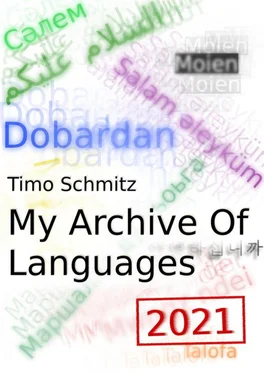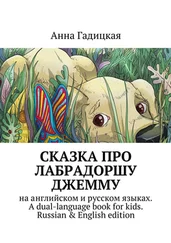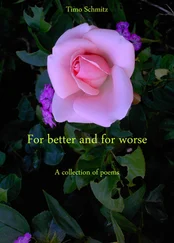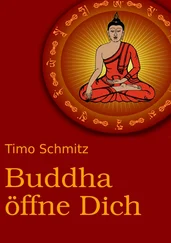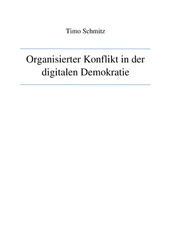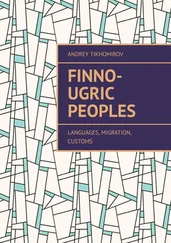Həmişə təmizlikdə! – Be always clean and pure!
Possessive pronouns (overview)
mənim (which consists of mən + im)
sənin (which consists of sən + in)
onun (which consists of o + nun)
bizim (which consists of biz + im)
sizin (which consists of siz + in)
onların (which consists of onlar + ın)
1) If there is e, ə, i, in the last syllable, you use –in
Examples: sənin, müəllimin (müəllim – teacher, müəllimin – the teacher’s), elmin (elm – science, elmin – of science)
2) If there is ö or ü, you use -ün
Examples: öküzün (öküz – bull), ütünün (ütü – iron).
3) If there is a or ı, you use -ın
Examples: ayının (ayı –bear)
4) If there is o or u, you have to use use -un
Examples: duzun (duz – salt, duzun – of salt), otun (ot – grass, otun – of grass)
If the word ends with a vowel you should add -nın, -nin, -nun, -nün.
Possession is also shown in the word that is possessed, so one does not have to add the possessive pronoun always.
For instance, one can say “kitabım” (my book), instead of “mənim kitabım”, or “kitabımız” (our book) instead of “bizim kitabımız”.
qapının açarı – key of the door
qapı – door
açar – key
qapının – of the door
To make “qapı” possessive, one has to add –nın, thus it is “qapının”.
However, the second word has to be transformed into possessive, too: thus it is açarı (by adding the -ı).
məktəb inbina sı– building of school (= school building)
məktəb – school
bina – building
Let’s take an overview over the suffixes that have to be added:
-ın
-in
-un
- ün
-nın (for vowel endings)
-nin (for vowel endings)
-nun (for vowel endings)
-nün (for vowel endings)
1st person sg.: -ım, -im, -um, -üm (kitabım, məktəbim)
2nd person sg.: -ın, -in, -un, -ün (kitabı, məktəbi)
3rd person sg.: -ı, -i, -u, -ü (kitabı, məktəbi)
1st person pl.: -mız, -miz, -muz, müz (kitabımız, məktəbimiz)
2nd person pl.: -nız, -niz, -nuz, nüz (kitabınız, məktəbiniz)
3rd person pl.: -ları, -ləri (kitabları, məktəbləri)
5 - Sən haralısan?
Sən haralısan? – Where are you from?
Mən Lüksemburqadanam – I am from Luxembourg
Lüksemburq is the country, -dan means from and -am is refering to “I” (mən)
Sənin neçə yaşın var? – How old are you?
Hansı rəngi sevirsən? – Which is your favorite color?
hansı – which
rəng – color
sevmək – to love, to like
sevir sən– youlike
yaşıl – green
sarı – yellow
mavi – blue
qırmızı – red
ağ – white
qara – black
qəhvəyi – brown
narıncı – orange
boz – grey, gray
Almaniya – Germany
Avstriya – Austria
Fransa – France
Belçika – Belgium
Niderland – The Netherlands
Ermənistan – Armenia
Helelik – See you!
heç nə – nothing
Dünən qonaqlarımız var idi – Yesterday we had guests
qonaq – guest
qonaqlar – guests
qonaqlarımız – our guests
6 - Mən səni gözlədim
Mən səni gözlədim – I have waited for you
işləmişəm – I was working
Hələ yoxdur – No news yet
Nə ile meşqulsan – What are you doing?
Mən de soruşuram – I am also busy
hem de yaxşı gezmişəm – I also came well
gelmişdi – had come
Sənin keçən həftə etməli çox işin var idi? – There were many things you had to do in the last days?
Bəli etməli çox işim var idi – Yes, there were many things to do
Sən məşqulsan? – Are you busy?
Mən səni narahat etmirəm? – Am I disturbing you?
Check yourself (Paragraphs 1-5)
I. Translate into English.
1. Necəsiz?
2. Sən necəsən?
3. Sənin adın nədir?
4. Mənim adım ...
5. Haralısan?
6. Mən Lüksemburqadanam.
7. Tanış olmağıma çox şadam
8. Sağ olun
II. Translate into Azeri.
1. Are there any news?
2. How was your weekend?
3. You are very busy.
4. How is the weather?
III. Vocabulary
1. cold
2. time
3. (to) read
4. hope
5. everything
6. (to) find
7. potatoes
8. oranges
IV. possessive pronouns
1. After e, ə, i one uses ____.
2. After ö and ü, one uses ______.
3. After a or ı, one uses ____.
4. After o and u, one uses ____.
V. Translate into Azeri.
1. It is cold.
2. it is warm.
3. It is good!
4. How much costs this?
Solutions:
Task 1:
1. How are you? (formal)
2. How are you? (informal)
3. What’s your name?
4. My name is …
5. Where are you from?
6. I am from Luxembourg.
7. Nice to meet you.
8. Thank you! (formal)
Task 2:
1. Təzə nə xəbər var?/ Xəbər varmı?
2. Həftəsonunu necə keçiribsən?
3. Sən çox meşqulsən.
4. Hava necədir?
Task 3:
1. soyuq
2. vaxt
3. oxumaq
4. ümid
5. hər şey
6. tapmaq
7. kartoflar
8. portağal
Task 4:
1. -in
2. –ün
3. –ın
4. –un
Task 5:
1. Soyuqdur!
2. Istidir!
3. Yaxşıdır!
4. Neçəyədir?
7 - Nə gülürsən?
Nə gülürsən? – Why do you laugh?
gülüş – laugh
xoşbəxtlik – happiness
indi – now
yoxdu xəbər? – No news?
əla – super
həmişə yaxşı – always good
həmişə - always (compare Turkmen: hemishe)
Salamatlıqdır – I’m alive (it means that one is doing fine).
Köhnə hamam köhnə tas - old bathroom, old pan (proverb meaning that everything is as always)
Nə var nə yox? – lit.: What do you have and what not; Are there anynews?
Soyuq adamı kəsir. – The cold cuts a man (proverb meaning that it is very cold)
Hava cok maraqlidir. (Iran) – The weather is really fine.
Sagdilik (Iran) – Everything is fine, I am fine
Bəli – yes
Mən gözələm? – Am I beautiful?
Gözələm mən? – Am I beautiful?
gözəl – pretty, beautiful
yaraşıqlı – handsome
Yaraşıqlıyam mən? – Am I handsome?
Mən yaraşıqlıyam? – Am I handsome?
əlbəttə – sure
Ad günün mübarək – Happy birthday!
Check yourself (Paragraphs 6-7)
I. Vocabulary test.
1. laugh
2. happiness
3. always
4. yes
5. beautiful, pretty
6. handsome
II. Translate into Azeri.
1. Everything is always fine.
2. The weather is fine today.
3. Mən yaraşıqlıyam?, Yaraşıqlıyam mən?
4. Yoxdu xəbər!
Solutions:
Task 1:
1. gülüş
2. xoşbəxtlik
3. həmişə
4. bəli
5. gözəl
6. yaraşıqlı
Task 2:
1. Həmişə sağdilik.
2. Bu gün hava çox maraqlidir.
3. Am I handsome?
4. I have no news.
8 - səndə vəziyyət necədir?
Conversation:
Sevda: Salam əleyküm.
Sabrina: Əleyküm salam.
Sevda: Necəsən?
Sabrina: Mən yaxşıyam, sağ ol. Sən nəcəsən?
Sevda: Yaxşıyamç teşekkür.
Sabrina: Təzə nə xəbər var?
Sevda: Yox xəbər. Xəbər varmı?
Sabrina: Yox, sağdilik. Hava necədir?
Sevda: Güneşli.
Sabrina: Əla! Həmişə yaxşı!
Sevda: Bu gün mən gözələm?
Sabrina: Əlbəttə! Həmişə!
Sevda: Sağ ol! Salamatlıqdır!
Читать дальше
